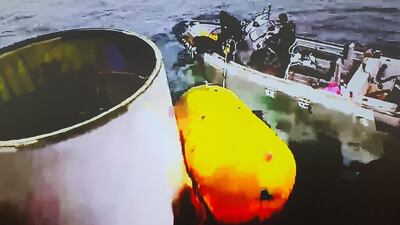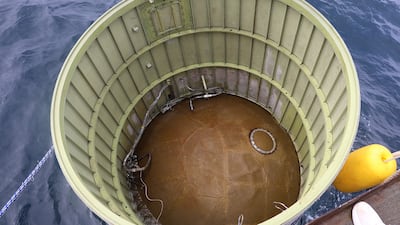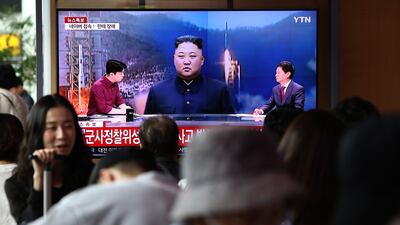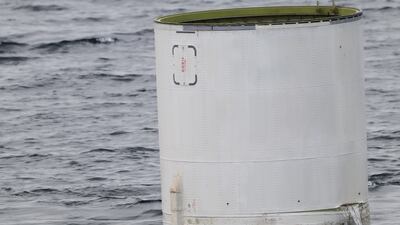North Korea launched a military reconnaissance satellite early on Wednesday but it crashed into the sea.
North Korean space authorities "launched a military reconnaissance satellite, 'Malligyong-1', mounted on a new-type carrier rocket, 'Chollima-1'," early Wednesday, the official Korean Central News Agency reported.
The rocket crashed into the sea "after losing thrust due to the abnormal starting of the second-stage engine after the separation of the first stage during the normal flight," it said.
Scientists were examining the cause of the failure.
South Korea and Japan said the launch prompted brief evacuations there as the North appeared to be trying to put its first military spy satellite into orbit.
The rocket was launched about 6.30am from the North’s north-western Tongchang-ri area, home to the country’s main space launch centre, the Joint Chiefs of Staff said.
After the launch, the South Korean capital of Seoul issued alerts over public speakers and mobile phone text messages telling residents to prepare to be evacuated.
The alert prompted consternation and confusion on Twitter before Seoul's Interior Ministry minutes later said the alert had been "incorrectly issued".
The Japanese government activated a missile warning system for its Okinawa prefecture in south-western Japan, which was believed to be in the path of the rocket.
"Please evacuate into buildings or underground,” the alert said. Authorities later lifted the calls.
North Korea on Tuesday confirmed it planned to launch what it called "military reconnaissance satellite No 1" before June 11, having told Japan of its plans a day earlier.
A satellite launch by North Korea is a breach of UN Security Council resolutions that ban Pyongyang from using ballistic technology because it is regarded as a cover for missile tests.
UN Secretary-General Antonio Guterres condemned North Korea's military satellite launch on Wednesday.
"The Secretary-General strongly condemns the military satellite launch conducted by the Democratic People’s Republic of Korea," Stéphane Dujarric, spokesman for the Secretary-General, said in a statement.
Ri Pyong-chol, a top North Korean official and close associate of leader Kim Jong-un, said on Tuesday that the country was compelled to secure “a reliable reconnaissance and information" system because of what it said were escalating security threats by the US and its allies.
Mr Ri said the North would launch a spy satellite in June.
North Korea does not have a functioning satellite in space, experts say.
Since 1998, Pyongyang has launched five satellites, three of which failed immediately and two of which appeared to have been put into orbit.
But signals from them have never been independently detected, indicating they may have malfunctioned.
Pyongyang, which typically does not give advanced warning of missile launches, has been known to inform international bodies of purportedly peaceful satellite launch plans.
Since diplomatic efforts collapsed in 2019, North Korea has increased military development, conducting a string of banned weapons tests, including test-firing ICBMs.
Mr Kim last year declared his country an "irreversible" nuclear power and called for an "exponential" increase in weapons production, including atomic.
The US National Security Council spokesperson Adam Hodge said that it condemned the "launch using ballistic missile technology" and encouraged diplomacy.
"We urge all countries to condemn this launch and call on the DPRK to come to the table for serious negotiations. The door has not closed on diplomacy but Pyongyang must immediately cease its provocative actions and instead choose engagement," the NSC statement said.






